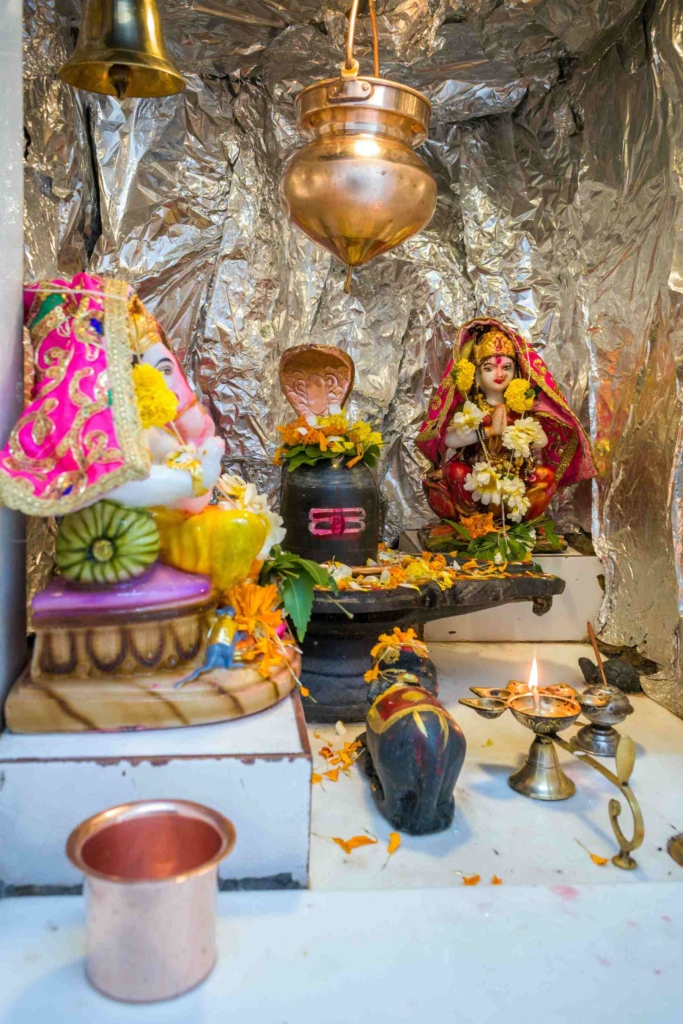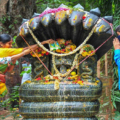Maha Shivaratri, one of the most revered Hindu festivals, is a night dedicated to Lord Shiva, the deity of destruction and transformation. Celebrated annually in the lunar month of Phalguna (usually February or March), this spiritual occasion holds immense significance for millions of devotees across India.

The heart of Maha Shivaratri lies in fasting, prayer, and meditation. Devotees fast during the day, seeking purity of body and mind to connect with Lord Shiva. As evening descends, temples come alive with the sound of bells, chants, and the fragrance of incense. The ‘Shivlinga,’ a sacred symbol of Lord Shiva, is bathed with milk, honey, and water while priests offer ‘bilva’ leaves and chant prayers.
What makes Maha Shivaratri truly captivating are the ‘jagrans’ or night-long vigil ceremonies held in temples and homes. Devotees stay awake, immersing themselves in bhajans (devotional songs) and profound meditation. It’s believed that on this night, Lord Shiva performs the cosmic dance of creation, preservation, and destruction.
One of the most famous celebrations takes place in Varanasi, along the banks of the Ganges River. Here, thousands of sadhus (holy men) and pilgrims gather to pay their respects. The city becomes a surreal landscape of orange-clad devotees and flickering oil lamps.
For travellers seeking a deeply spiritual and culturally rich experience in India, Maha Shivaratri offers a profound opportunity. It’s a night to witness the power of devotion, the mysticism of Lord Shiva, and the unbreakable bond between the divine and the mortal. Join the celebration and let the spiritual energy of Maha Shivaratri awaken your soul.
In conclusion, Experience the spiritual fervour of Maha Shivaratri, one of Hinduism’s most revered festivals. This night, dedicated to Lord Shiva, involves fasting, prayer, and meditation to seek purity of body and mind. Temples come alive with rituals, including the bathing of the sacred Shivlinga, offering bilva leaves, and chanting prayers. The captivating night-long vigil ceremonies, known as jagrans, immerse devotees in devotional songs and profound meditation.


